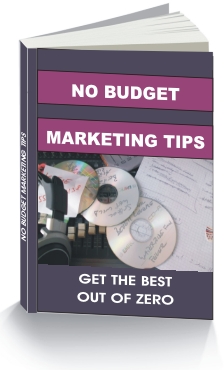A new wave of music theft is about to roll in – and this time it’s not the „fans“ who use illegal means to avoid the purchase. This time musicians are making unauthorized use of other musicians’ tracks and call it theirs. So how does it work exactly?
Disclaimer: This article is not meant to be legal advice. The author is not a lawyer. For binding legal advice please consult a lawyer who specializes in copyright and entertainment law.
While it is in fact difficult to steal someone’s entire vocalized song and pretend it’s yours (your voice may sound different), the life of a track thief looks quite a bit easier. Instrumental music, once taken advantage of, is then being uploaded to music libraries or simply used as backing tracks for the thief’s vocal recordings.
More than 10 questionable albums has a young musician recorded that feature backing tracks of others and made it available through renowned stores and digital outlets. A number, not a small one, of musicians on the Music Library Report forum recently discussed exactly this since they have found their tracks on said “artist’s” albums. His vocals are so bad nobody will actually buy his music anyway – so no actual damage is done – but the method stays lousy.
If that weren’t enough, yet more thieves have registered their stolen tracks with services like sound Exchange and AdRev in their name so they can cash in on potential royalties. Besides that their registration of “their” tracks somehow indicates they are the owners of said recordings.
What can you do about it? There will always be ways for shady folks to get illegal access to music. So what is left to do for musicians is to prove ownership of both the sound recording and the underlying composition. While you can never really guarantee that you are the one who thought up that great melody you can plan ahead to provide ‘circumstantial evidence’. In practice this means you can register your music before anyone else does – and thus be the first to claim copyright, which presumably is the strongest indicator for ownership.
Library Of Congress
The U.S. Copyright Office at the Library of Congress is the only ‘official’ place in the world to file a copyright claim. For a really small fee of $35.00 per claim (which can even be a collection of several albums) your songs will get deposited either physically or digitally for (potential) future reference. You will receive a certificate by mail as well.
Sound Exchange
Sound Exchange identifies sound recordings on the internet when they are being played on internet radio, for example, collects royalties and forwards them to the respective rights owners. It – literally, no pun intended – pays off to be the first.
AdRev / Content ID
Likewise it is advisable to beat thieves on the punch by being the first to register your songs with monetization programs and say “all payments to my wallet, please”.
safecreative
Spanish company safecreative offers a new, technically sophisticated way to deposit your music online and claim copyright ownership.
In the end we will not be able to prevent theft through some backdoor, and luckily it doesn’t happen every day. However, we can provide against the worst case in that we make the necessary arrangements to proof ownership of our intellectual property. So we should fasten that seatbelt as soon as possible in the life of a song.
* * * * * * * * * * * * * * * * * * * * * * * * *
Get more tips and sign up for the
MusicBiz Madness Newsletter !!!
And get the e-Book “No Budget Marketing Tips” on top. ALL FREE !!!





